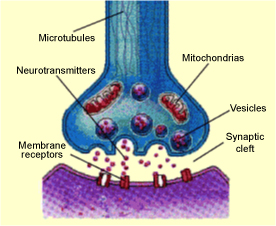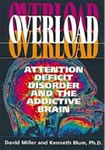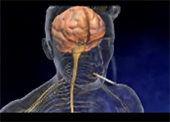Do not give your child (or take as an adult) a drug such as Ritalin, which has a similar affect on the brain as cocaine, until you have seen this information.
Entries Tagged as 'Drugs and Brain Disorders'
Are You Drugging Yourself or Child For ADHD?
July 28th, 2013 · No Comments
Tags: Drugs and Brain Disorders
Christopher Dorner and Prescription Psychotropic Drugs
March 3rd, 2013 · No Comments
Here is an article by Dr. C.E. Gant that appeared in the American Thinker magazine today.
With the Christopher Dorner case, the role of prescription psychotropic drugs in mass killings has again come to the forefront. Numerous articles have approached the role of so-called “psych meds” in causing depraved and indifferent violent behavior, but one in particular deserves attention because it highlights the fact that among psychiatric professionals there is no coherent understanding of what needs to be done after we take people off of drugs that are prescribed for their psychiatric illnesses.
The article — Jon Rappoport’s “Is Christopher Dorner Another Psychiatric Killer?” — makes a number of important points about the former Los Angeles police officer’s mental health. Dorner had been treated for severe depression since 2008, and Rappoport correctly proposes that the drugs Dorner was prescribed to treat his depression were almost certainly among the causes of his seeking violent revenge against members of the Los Angeles Police Department.
But there are problems with Mr. Rappoport’s article that need to be addressed. Contrary to his assertion that brain chemistry is not a key to developing psychiatric illnesses, mood disorders and other psychiatric illnesses are in fact directly connected to the brain’s ability to produce key neurotransmitters, including the relaxant serotonin, painkilling endorphins and enkephalins, anxiety-preventing GABA, and feel-good catecholamines such as dopamine.
When the brain does not receive the necessary nutrients to enable neurons to assemble these neurotransmitters, or when other factors cause neurotransmitter production and transmission to break down, illnesses including depression, anxiety, ADHD, and bipolar illness, among many others, often result. When prescription psychotropic medications are used to treat these conditions, frontal lobe damage often ensues. Recently, the term “frontal lobe syndrome” has been brought into use to describe the effects of prolonged prescription psychotropic drug use that damages this portion of the brain and increases our propensity to act violently and with depraved indifference.
But beyond Mr. Rappoport’s misconceptions about neurotransmitters, I want to point out that there’s a disturbing disconnect among mental health professionals who understand that so-called psych meds invariably do more harm than good to their patients. While professionals like Drs. Peter Breggin and David Healy, to whose work Rappoport refers, correctly discourage the use of prescription psychotropic drugs designed to treat conditions such as bipolar disorder and depression, they provide no effective alternative methods to treat the underlying biophysical factors that cause mental disorders beyond talking therapies.
In most cases, taking people off of prescription psychotropic medication without diagnosing and treating the underlying conditions that are the true causes of their psychiatric disorders does more harm than good.
Let me explain further.
Tags: Drugs and Brain Disorders
Drugs and Mental Health
January 10th, 2013 · No Comments
Read this amazing story about a family trying to make the right choice between conventional medicine and alternative methods to help their daughter diagnosed with schizophrenia live a normal life.
Crystal Kelley felt like she’d been sucker punched.
Alone in an unfamiliar city, the 48-year-old Overland Park woman closed her eyes in her parked rental car and began to cry. This couldn’t be happening. Not after all she’d been through.
But by all indications, she and her 28-year-old mentally ill daughter, Caresa Vance, had flown a thousand miles from Kansas City to Phoenix for nothing. They made the trip after a social worker assured them that Vance could transfer from Osawatomie State Hospital to the state hospital in Arizona — only to be turned away.
It was supposed to be Vance’s happy ending, the first step toward alternative treatment that held out hope for a full recovery from schizophrenia.
Now that was in question.
“Mom!” her panicked daughter blubbered. “I can’t go back to Osawatomie. I’ll kill myself!”
“You’re not going back,” Kelley said, resolutely.
Brave words. But Kelley knew if her daughter returned to Kansas, she’d have to go back.
Court order.
Kelley couldn’t let that happen. Still, she didn’t know a soul in Phoenix. And while Vance wasn’t hallucinating at the moment, it was only a matter of time before the witches’ brew of psychotropic drugs swirling in her brain again would cause her to hear voices and see demons. Doctors meant well. They just didn’t realize that the drugs that had helped countless other schizophrenics only made Kelley’s daughter worse.
Kelley put her arm around her shaking daughter.
“My God,” she thought. “What am I going to do now?”
Tags: Drugs and Brain Disorders
Mass Killings and Psychotropic Drugs
January 5th, 2013 · No Comments
The area in which we need much more restrictive laws is not gun control; rather, we need tighter and more restrictive controls against allowing psychotropic chemicals to get into the brains of children 21 years of age and younger, during which time their brains are developing and very vulnerable.
Tags: Drugs and Brain Disorders
Brain Neurotransmitters and Addictions
December 9th, 2009 · No Comments
 It’s been only about a quarter of a century since we discovered that, contrary to what we’d thought for decades prior to that time, the brain actually sends signals from one neuron to another by means of chemical molecules, called neurotransmitters. That discovery has enabled us to put together the pieces of the puzzle of addiction in a way that we simply hadn’t been able to do before we knew about these amazing chemical messengers.
It’s been only about a quarter of a century since we discovered that, contrary to what we’d thought for decades prior to that time, the brain actually sends signals from one neuron to another by means of chemical molecules, called neurotransmitters. That discovery has enabled us to put together the pieces of the puzzle of addiction in a way that we simply hadn’t been able to do before we knew about these amazing chemical messengers.
Brain Neurotransmitters
Once we’d begun to understand how brain neurotransmitters work, we also began to understand how they control our moods, memory, thinking, and behavior. Each of our brain cells is a tiny but very powerful manufacturing plant that assembles these chemical molecules out of nutrients and passes them along to other neurons. When our brains have enough of the nutrients necessary to manufacture all of the neurotransmitters we need, we’re able to feel relaxed and alert, focused and free of fear, happy and pain-free. In short, when our brains have the nutrients they need to create neurotransmitters in the necessary quantities, we’re most fully alive, engaged, and productive.
Neurotransmitters and Addiction
When we’re unable to produce these chemical messengers in the necessary quantities, our moods, intellectual capability and behavior tend to deteriorate. We’re often unable to focus, we tend to worry about things that we probably shouldn’t be concerned with, we’re not “up” and alert and happy, and we have difficulty coping with pain, whether the pain is physical or emotional.
If neurotransmitter deficiencies persist over time, we’re often led to use prescription drugs, alcohol, so-called “street drugs”, and other substances, including nicotine, to substitute for our transmitter shortages. These drugs are capable of temporarily alleviating the symptoms of neurotransmitter deficiencies, but continued use of these substances can, often quite quickly, result in addiction, a situation in which our brains adapt and begin to rely on these transmitter substitutes to keep us going.
Tags: Drugs and Brain Disorders
Danger of Toxic and Heavy Metals
May 1st, 2009 · No Comments
Anyone who has a drug addiction should be tested for toxic and heavy metals as they are probably the most dangerous because of their potential to cause long-term and potentially irreversible brain injury.
The most common elements to test for are lead, mercury, and aluminum (also cadmium for smokers).
Do you have mercury tooth fillings? If yes, then have them removed.
Do you still have aluminum cookware? If so, throw it out!
Tags: Drugs and Brain Disorders
Psychotherapy and Brain Function
February 12th, 2009 · No Comments
 Daniel G. Amen, MD, is a psychiatrist, brain imaging specialist, the CEO and medical director of Amen Clinics, Inc. and best selling author.
Daniel G. Amen, MD, is a psychiatrist, brain imaging specialist, the CEO and medical director of Amen Clinics, Inc. and best selling author.
In a recent article on the Psychology Today web site, he answered 7 questions. Two of them were this:
3. What mistakes do therapists make that hinder the therapeutic process?
The biggest mistake I see is that they rarely consider the brain. I often say psychiatrists are the only medical specialists that never look at the organ they treat. How crazy is that!
How do we know unless we look?
We call people who have brain damage personality disordered? We call people with toxic exposure resistant to treatment? We think of depression as a singular illness, when it has many types, like chest pain. We need to do much better and it will start when we really take brain function seriously.
4. In your opinion, what is the ultimate goal of therapy?
Better brain function. I am convinced therapy goes much faster, and patients are better able to do their own lives when you help your patients have better brain function.
The other questions and answers are here:
Unchain Your Brain
Our son had Click Here! and also used drugs. We took him for evaluation and a brain scan at an Amen Clinic. It was informative.
But I would suggest before people have a brain scan, they should have extensive lab tests that check for food allergies, heavy metal toxicities, essential fatty acid deficiencies, amino acid deficiencies, vitamin & mineral imbalances, etc. Then get the proper nutrients into the body that are necessary to balance the brain and body.
Tags: Drugs and Brain Disorders
Addiction and ADHD
January 17th, 2009 · No Comments
 A counselor and a scientist collaborated on a book – “Overload” – to show that there is a vital connection between attention deficit disorder and addiction.
A counselor and a scientist collaborated on a book – “Overload” – to show that there is a vital connection between attention deficit disorder and addiction.
David Miller, a counselor, had struggled with his own ADHD and alcoholism.
Kenneth Blum, PhD, a renowned neuroscientist credited with the co-discovery (with Dr. Ernest Noble of UCLA and former director of The National Institute on Alcoholism and Alcohol Abuse (NIAAA)) of the first genetic association of the dopamine D2 receptor gene with severe alcoholism.
Some of the findings I learned include:
* Significantly more children with attention deficit hyperactivity disorder (ADHD) develop problems with alcoholism or drug addiction than do children without ADHD.
* The D2 receptor gene is associated with a variety of impulsive, compulsive, addictive behaviors, including the use of crack cocaine, smoking, and attention deficit hyperactivity disorder. Dr. Blum gave a name to this complex condition – reward deficiency syndrome (RDS). This relates to the deficiency in the reward part of the brain where dopamine works.
Tags: Drugs and Brain Disorders
Alcohol, Drugs and Holidays
December 19th, 2008 · No Comments
 Daniel Amen, MD is a physician, psychiatrist, author and a pioneer in brain imaging.
Daniel Amen, MD is a physician, psychiatrist, author and a pioneer in brain imaging.
In his recent newsletter, he states that January is the busiest month in mental health treatment nationwide. For many, the holidays bring a lot of unpleasant memories, unrealized expectations and stress. It is easy to get into the comfort zone of overeating, isolating and abusing alcohol and drugs.
Unfortunately, the temporary relief provided by indulging wears off fast and leaves you feeling worse. And, the damage you do to your brain sets the stage for repeated failure.
As to brain scans, Dr Amen discovered that a healthy scan shows full, even, symmetrical activity. Drug and alcohol abuse tended to cause overall decreased activity in the brain. These brains looked more aged, more shriveled, and more toxic than the brains of people who did not use drugs.
Heroin and heroin-like drugs, called opiates, caused severe decreased activity, as did much alcohol. Methamphetamines and cocaine tended to cause what looked like multiple holes or mini-strokes in the brain. Marijuana caused decreased activity in the frontal and temporal lobe areas (areas involved with memory and motivation).
One of the most powerful lessons learned from imaging is that many people who abuse substances are really trying to change their own brain chemistry (self medication).
Tags: Drugs and Brain Disorders
Marijuana Brain
October 29th, 2008 · No Comments
 Chronic, heavy marijuana use during adolescence, which is a critical period of ongoing brain development, is associated with poorer performance on thinking tasks, including slower psychomotor speed and poorer complex attention, verbal memory and planning ability.
Chronic, heavy marijuana use during adolescence, which is a critical period of ongoing brain development, is associated with poorer performance on thinking tasks, including slower psychomotor speed and poorer complex attention, verbal memory and planning ability.
Research supported by the National Institute on Drug Abuse (NIDA) shows that it is evident even after a month of stopping marijuana use. There may be partial recovery of verbal memory functioning within the first three weeks of abstinence from marijuana, but complex attention skills continue to be affected.
Not only are their thinking abilities worse, their brain activation to cognitive tasks is abnormal. The tasks are fairly easy, such as remembering the location of objects, and they may be able to complete the tasks, but the adolescent marijuana users are using more of their parietal and frontal cortices to complete the tasks. Their brain is working harder than it should.
Girls may be at an even greater risk than boys.